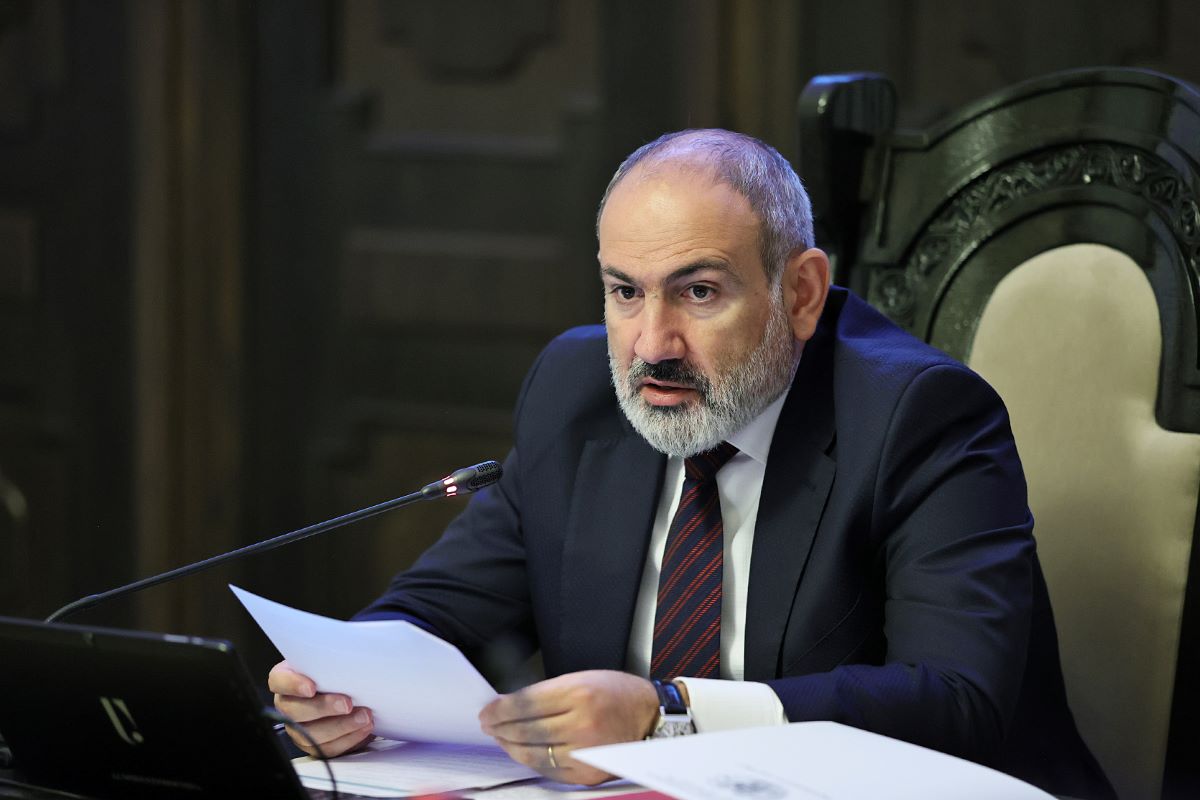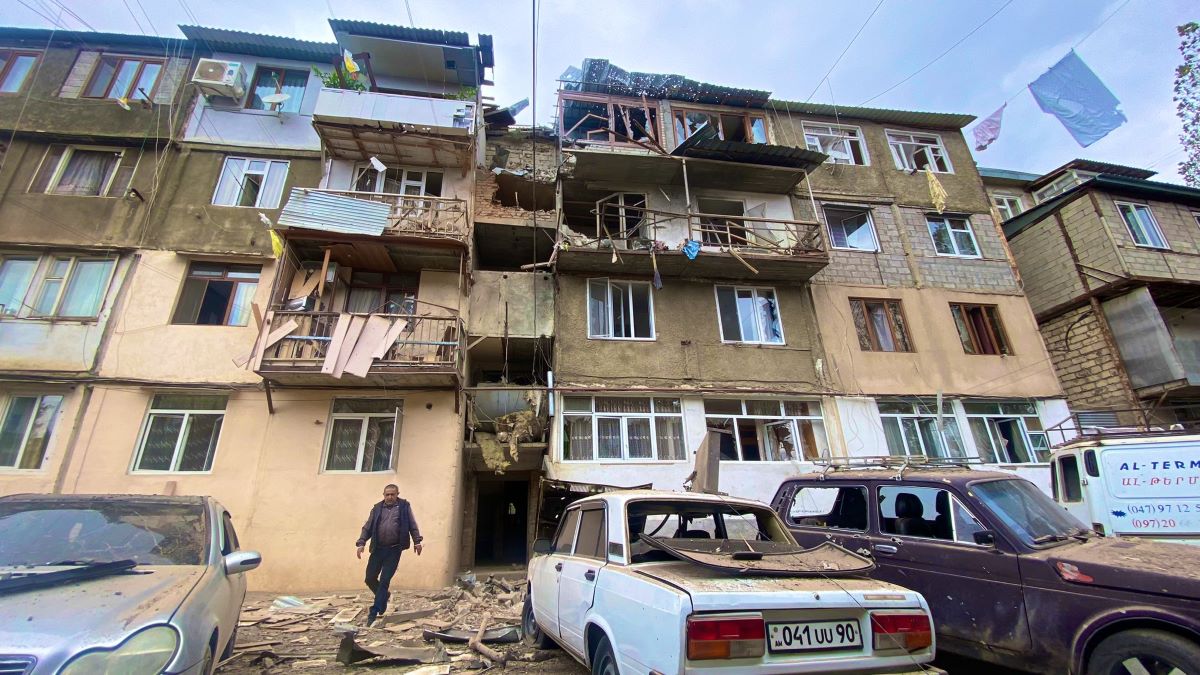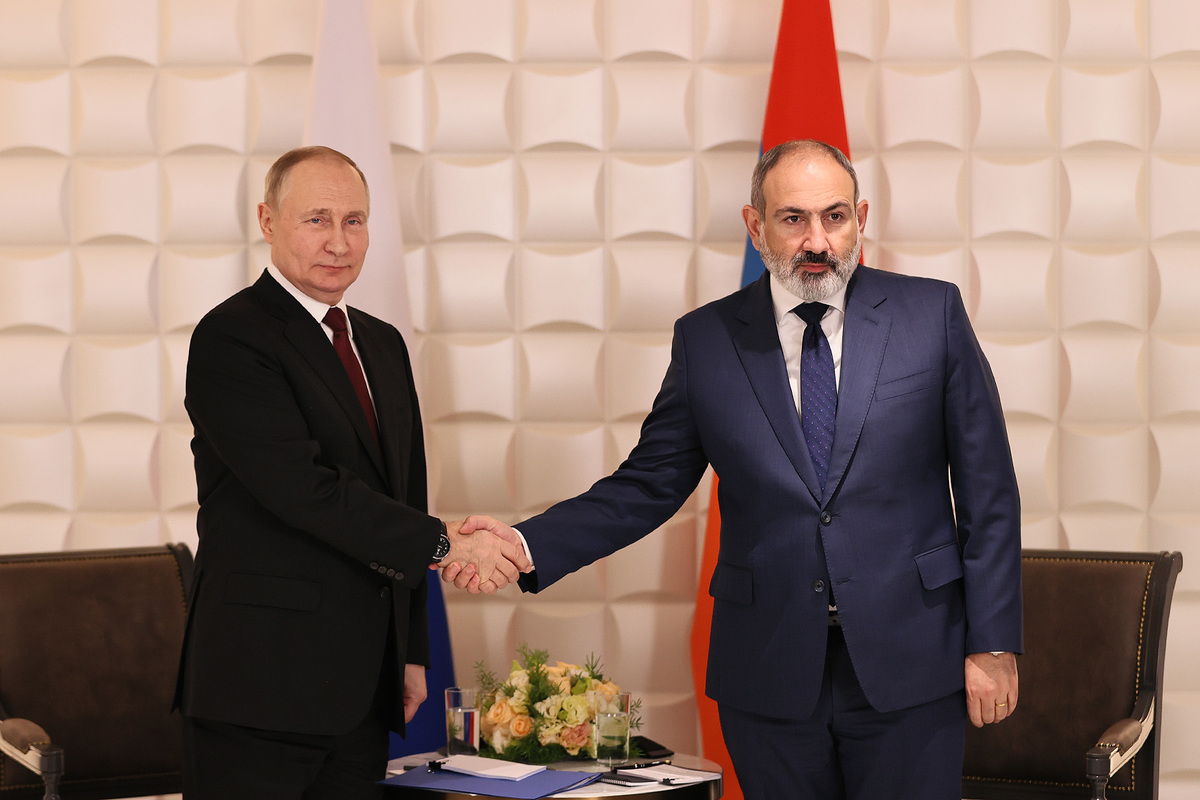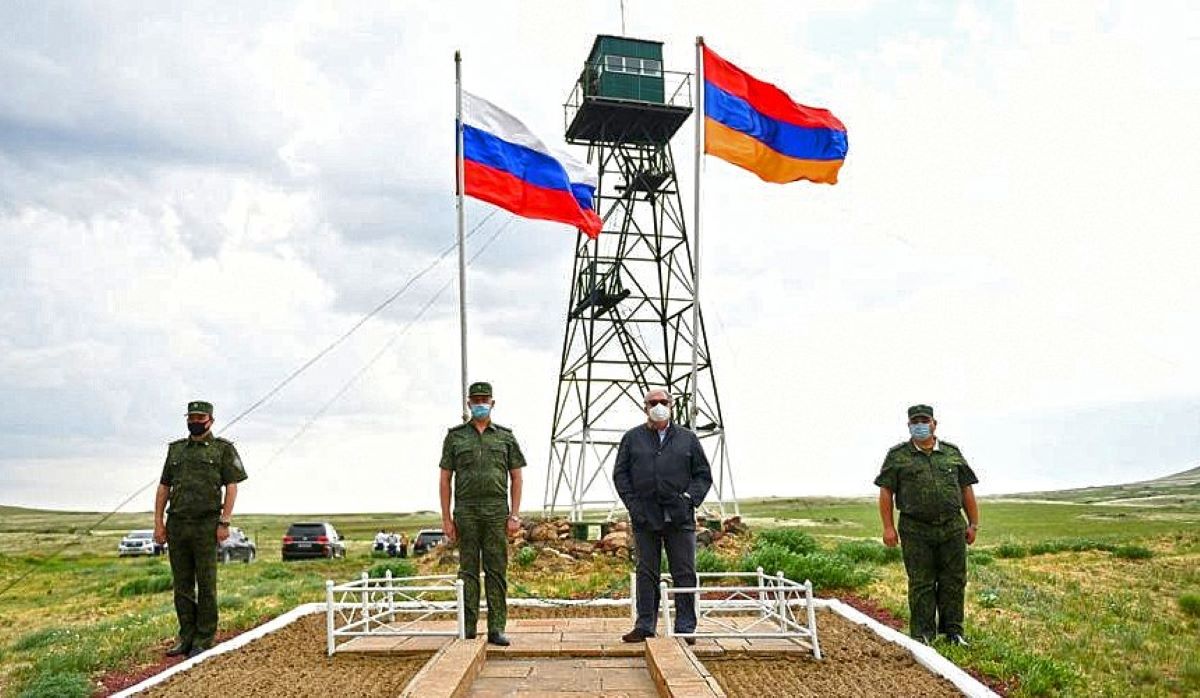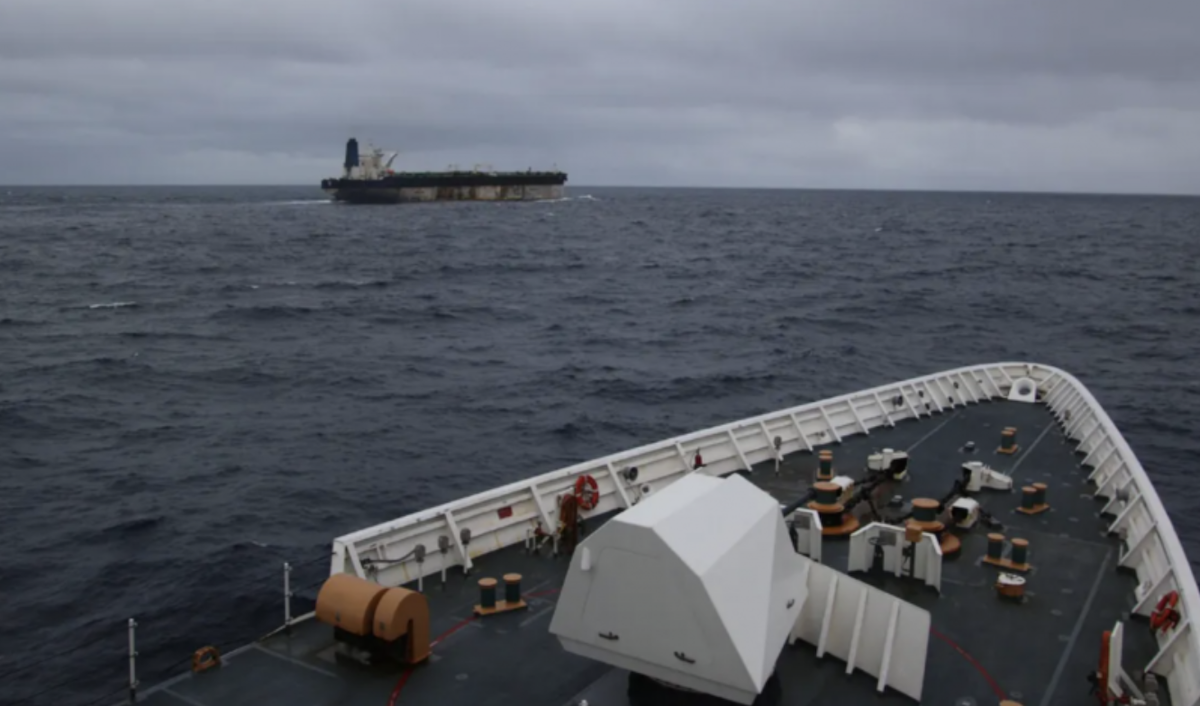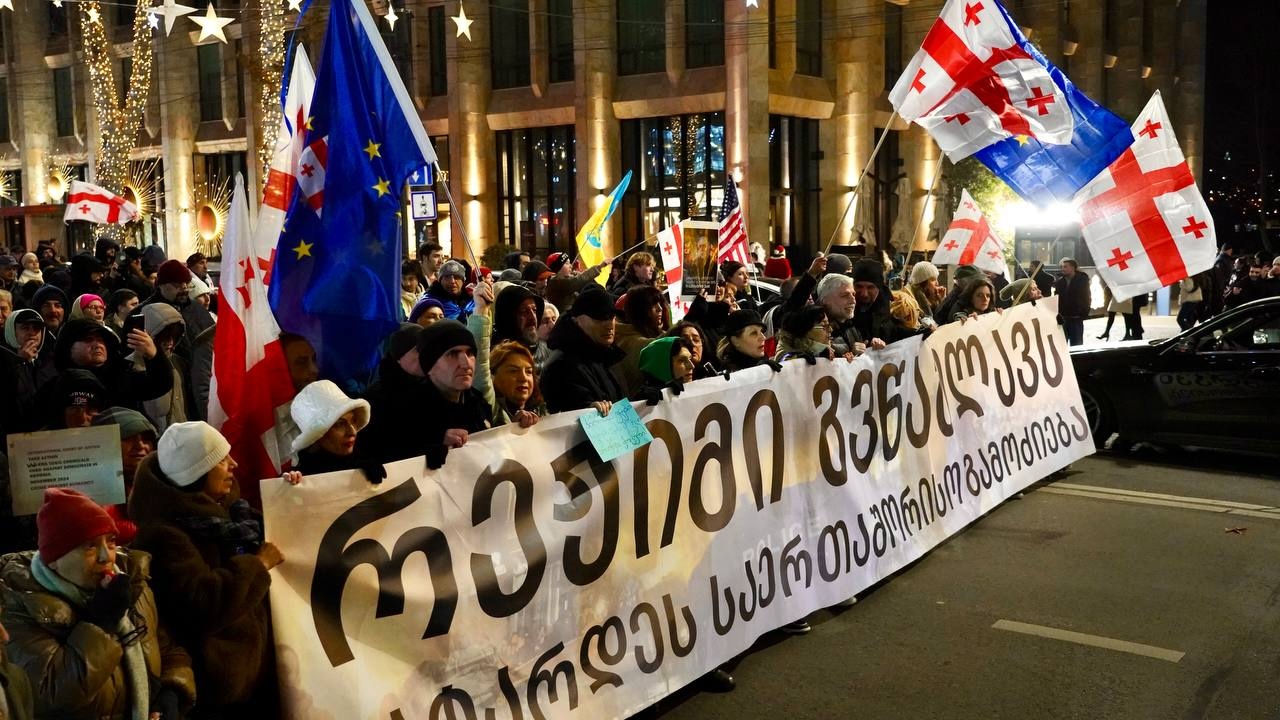Urgently sever ties with Russia or calculate risks? Discussions in Yerevan
Changes in Armenia’s foreign policy course
After the September military actions in Nagorno-Karabakh, expert circles in Armenia are increasingly talking about the uselessness of the Russian presence in the region.
Analysts focus on the inactivity of Russian peacekeepers stationed on the territory of the unrecognized NKR. There are statements that the peacekeeping mission has not ensured the safety of the residents of Nagorno-Karabakh, as a result of which their mass evacuation is now taking place.
Moscow accuses the Armenian Prime Minister of this, recalling the document he signed in Prague recognizing the territorial integrity of Azerbaijan, including the territory of Nagorno-Karabakh. While Putin himself, long before the Prague agreement, had twice publicly stated that Nagorno-Karabakh is part of Azerbaijan.
Even threats to Armenia are heard from Russia. A State Duma deputy threatened that “Armenia will cease to exist” and become a province of the Russian Federation.
Prime Minister Nikol Pashinyan also raised this topic in his Sunday address to the nation. He said that every Armenian citizen should make a choice whether he is “a participant of the movement for the defense of independence or a supporter of a submissive distant province.”
Many Armenian political analysts believe that it is necessary to urgently and definitively sever all ties with Russia, to stop considering this country as a guarantor of security, despite the possible consequences. Others suggest still calculating the risks, as the West, in their opinion, will not take responsibility for ensuring Armenia’s security.
Changes in Armenia’s foreign policy course
“Unshackled state or province?” Pashinyan’s address
“The attacks launched by Azerbaijan against the Republic of Armenia in recent years lead to the obvious conclusion that those external security systems, of which we are a part, are not effective from the point of view of the state interests and security of the Republic of Armenia,” the Armenian Prime Minister said in his address to the nation yesterday.
According to him, this was observed both during the 44-day war in Karabakh and after it, including during the recent hostilities.
In Pashinyan’s assessment, the allies on whom Armenia has relied over the years have set out to “flaunt our vulnerability and justify the Armenian people’s inability to have an independent state.”
He stated that “some partners” are making more and more efforts in that direction, jeopardizing the country’s external and internal security and violating all norms of etiquette and correctness in diplomatic and interstate relations.
The Armenian Prime Minister assured that all measures will be taken to protect the independence of the country, including
- transformation, supplementing and enriching the instruments of external and internal security in cooperation with all partners ready for mutually beneficial steps,
- comprehensive reforms of the army and security forces,
- de jure fixation of the agreements reached on October 6, 2022 in Prague and May 14, 2023 in Brussels,
- ratification of the Rome Statute.
According to Pashinyan, the deep meaning of the events taking place in Armenia is the following: “whether Armenia will be a sovereign, free, democratic state or a frightened distant province.” He believes that “the citizen of the Republic of Armenia will not lose his pride and determination and will win in this struggle for independence, sovereignty, democracy, happiness and freedom”.
Changes in Armenia’s foreign policy course
“Armenia will cease to exist.”
Yevgeny Fedorov, a State Duma deputy from the ruling United Russia party, recently made a statement about the establishment of a puppet regime in Armenia that would replace Russia’s power:
“Armenia will cease to exist. We will restore control over this territory. There will be a governor there or something else.”
Statements that Armenia has lost its way and this will lead it to various kinds of disasters are also heard at the level of Russian Foreign Minister Sergei Lavrov and Foreign Ministry spokesperson Maria Zakharova.
The latest warning appeared hours ago. It says that Armenia is making “a huge mistake, deliberately trying to collapse Armenia’s multifaceted and centuries-old ties with Russia and making the country a hostage of the West’s geopolitical games.”
The Russian Foreign Ministry statement comments in detail on the theses of Nikol Pashinyan’s address, which contains “unacceptable attacks on Russia.”
“The head of the government, in fact, admitted that all this time the republic was deliberately prepared to turn away from Russia. His steps, designed to set a new – Western – vector of Armenia’s development, are unconvincingly justified by alleged mistakes on the part of the Russian Federation and the CSTO,” it reads.
Russian diplomats declare that “the irresponsible approach of Pashinyan’s team has caused understandable discontent in part of the Armenian society, which was expressed in popular protests”. They claim that Russia has nothing to do with them:
“The head of the Armenian government should be well aware that Moscow does not deal with such things – unlike the West, which is quite skilled in organizing ‘color revolutions’, but by a strange coincidence chose not to notice the numerous facts of persecution of protesters by the authorities in Yerevan.”
Comments
Military and security expert Hrachya Arzumanyan insists that Armenia must take decisive steps immediately. He believes that if Armenia does not sever all ties with Russia, “the events that happened in Stepanakert will happen in Yerevan as well.”
Arzumanyan stated that there is no need for unnecessary words and declare their intentions, it is time to act. In particular, ratify the Rome Statute and withdraw from the Russian military bloc CSTO. Then, he said, the West and power centers will see that Armenia has made its choice:
“If you don’t get out from under Russia’s terrorist blackmail, everything will end up like in Artsakh, confidence will be lost. We need to blow up this blackmail to get a chance to save and protect our independence”.
According to the expert’s assessment, Russia itself has declared Armenia an enemy. He opines that Armenia as a democratic country poses an “existential threat” to Moscow.
He is convinced that Moscow is the organizer of the struggle for the change of power, which is going on these days in the streets of Yerevan. Arzumanyan believes the goal is to create chaos in Armenia and destroy the state.
Among the actions aimed at overthrowing the Armenian statehood he names the second Karabakh war in 2020 and military actions on September 19-20, 2023. The analyst declares the Russian-Turkish tandem to be their author:
“This operation will not end with Artsakh. The next step will be the territory of Armenia, Syunik [southern region of Armenia bordering Azerbaijan]”.
It is for this reason that Hrachya Arzumanyan considers it necessary to sever security ties with Russia. He suggests that Armenia build allied relations with those countries with which its national interests coincide. In addition to the collective West, he names Iran and India as potential partners.
Political observer Hakob Badalyan believes that in addition to “brave and self-confident” statements about changing the foreign policy vector, one should also seriously think about the “bloody price” that will have to be paid for it:
“And even after paying this price one should doubt the success of the change. A change of vector will mean a change of the main responsible person. This means that instead of Russia, it is the West that should become responsible. And the West does not need to emphasize the fact of its own responsibility, but only the complete overthrow of Russia’s responsibility”.
The expert says that the “alternative” offered by the West is as follows: “if you want security, you need to negotiate with Turkey and Azerbaijan, and we will provide you with a “room” for negotiations free of charge”.
It reminds that Russia has much more opportunities than Armenia to make favorable agreements with Azerbaijan and Turkey, and at Armenia’s expense. And in order to get out of this “trap,” it is not necessary to change the vector:
“If we do not have sufficient intellectual institutional capacity to develop other mechanisms and options, it does not mean that there is only one possibility left – to change the vector, especially in the situation of a world war.”
At the same time, the observer does not think that Armenia will be immune from “new bloody stages” if it does not change the vector.
According to Badalyan, to increase resilience, changes inside the country are needed, “starting from the relations within the society and ending with the quality and content of socio-political and military institutions.”
In general, he advises to “minimize the motives and causes of acute reactions in the external field, regardless of the risk of this reaction”.
Follow us – Twitter | Facebook | Instagram
Changes in Armenia’s foreign policy course










